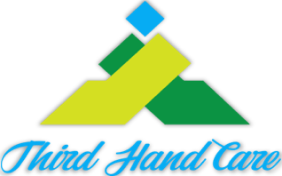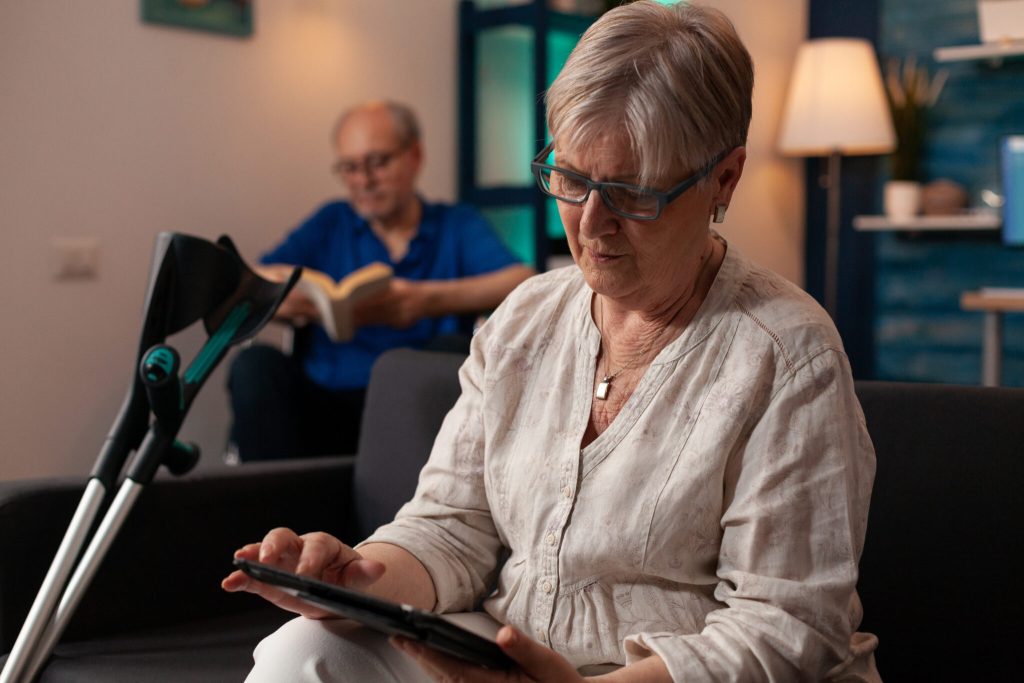When someone starts to need a bit more assistance in the home, it can be hard to know where to begin. As well as practical help with activities such as dressing, bathing, taking medication and preparing meals, people can often require extra support with remembering when to take medication, keeping the house safe and allowing carers remote access to keep an eye on their general wellbeing. The good news is that this can be straightforward to achieve, in the right circumstances, without having to move house or enter residential care.
Thanks to advances in technology and connectivity, there has been a huge increase of innovations in home care. These are enabling many people to stay in their own homes for longer when supported by care plans with tech features. Many customised technology solutions have been designed specifically with the safety and support of older and vulnerable people in mind. From memory reminder aids and online security functions to automated housework assistance and adaptive devices for home use, there are more smart devices for independent living than ever before.
Alarms and Alerts
One major concern that many people have as they or their loved ones grow older or need more help at home is the need for enhanced safety and security. This is where home security cameras and smart doorbells can be helpful to deter burglars and spot unwanted visitors to the property. There are also a number of alarms available to offer reassurance and summon help in the case of an emergency such as an accident or sudden illness. One common solution is to install an emergency contact device. This can be a wearable alarm and/or wall button that can be pressed to call for help. The system is connected to a call centre who can send out emergency responders if necessary, or get in touch with a designated friend, family member or carer. These types of system can also come with a fall alert function so that help can be summoned straight away if the person suffers a fall.
Medication Reminder Apps
Memory reminder apps, including those that alert the user when it is time to take their medication can be a huge help, especially if there is no live-in carer, or during the time between care staff visits. Connected home health solutions that support this can be as simple as an alarm clock or watch set to beep when it is time to take a tablet. One of the best ways of managing medications reminders, however, is to set up an app on a smartphone or tablet if the person is able to operate it reliably. This is one of the most useful – and potentially lifesaving of the remote monitoring capabilities currently on the market to support home care.
Vital Signs Monitoring Systems
Another way that technology for seniors is helping to support increased independence while keeping a watch from afar is the evolution of vital signs monitoring systems. These can be linked to a person for monitoring things like heart rate, blood pressure and blood sugar. Data is sent to carers, external medical professionals or family members. Anomalies can be spotted and acted upon straight away. These types of monitoring systems are also excellent for collecting data that can be used to track the progress of a condition over time.
Automated Lighting Systems
Many people report poor lighting as a cause of accidents, trips and injuries in the home. Not being able to see where you are going impedes your ability to move safely around the house or flat. Especially if there is lots of clutter or bulky medical equipment. Smart lighting brings a number of advantages to combat this problem. It generally uses LEDs, which does away with the need for regular changing of filament-based light bulbs. Smart lighting can also be turned on and off remotely, meaning that lights can be switched on ahead of the person arriving home so they don’t have to reach for a light switch in the dark.
Household Innovations
There are a number of automated and smart household appliances available that have been designed to support improved quality of life. Robotic vacuum cleaners can be programmed to collect dust and debris from carpets and floors automatically without the user having to carry heavy equipment around or keep bending over. Another useful innovation for people of any age are smart plugs that have timers attached. They turn appliances on and off at pre-programmed times. This can be useful to switch appliances such as dishwashers or slow cookers on or off remotely. They can also help give the impression that someone is home by having a light, radio or TV turn on or off at night even when no-one is physically there.




